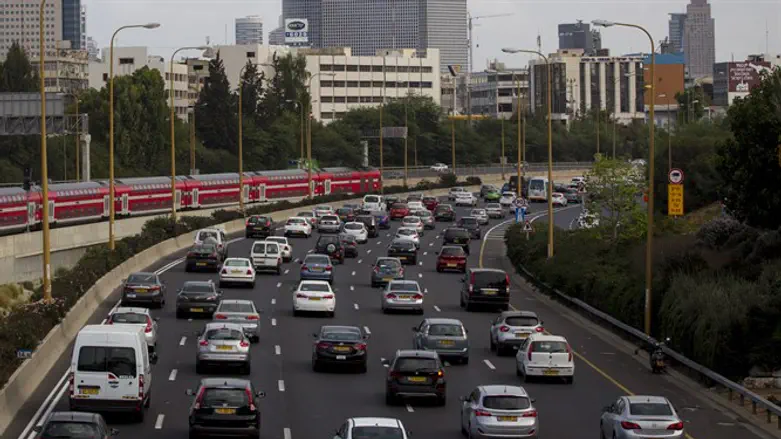
The State of Israel continues to grow apace, symbolized by increasing traffic jams and density. Just in 2016 alone, the number of miles traveled on Israel roads by motor vehicles jumped by 3.4 billion kilometers, or 6.2%, to over 58 billion kilometers.
The number of new cars sold in 2016 was 286,000 – 12.5% more than the year before – or 5,700 a week.
Already in 2014, Israel's roads and highways were the most crowded among the 35 member countries of the OECD (Organization for Economic Cooperation and Development), with more than 2,500 vehicles per road-kilometer. The situation has only grown more acute since then.
Israel is building more roads, but cannot keep up with the increase in vehicles. Between 2000 and the end of 2015, miles traveled grew by 50% and the number of cars jumped by 70% - while road area grew by only 40% and road-length was only 17% higher.
A new measure relating to the problem of traffic jams in Israel has been added to the Transportation Ministry's annual working plan. It shows that a trip on Israel's roads and highways in the afternoon and morning hours takes 64% longer than the same trip at night. The Transportation Ministry has set itself a very modest goal: to lower this number to 62%. Why such humility? The explanation is that it is due to all the ongoing infrastructure work.
The solution clearly lies in public transportation. Many projects are underway to this end, including new or expanded light rail routes in Israel's three largest cities (Jerusalem, Tel Aviv and Haifa),and expanded train routes between cities and various parts of the countries. However, only 47% of the objectives set for 2016 for these programs were met.
It can therefore be expected that as Aliyah and Israel's birth rate thankfully increase, the problems will not go away – but they are being worked on.